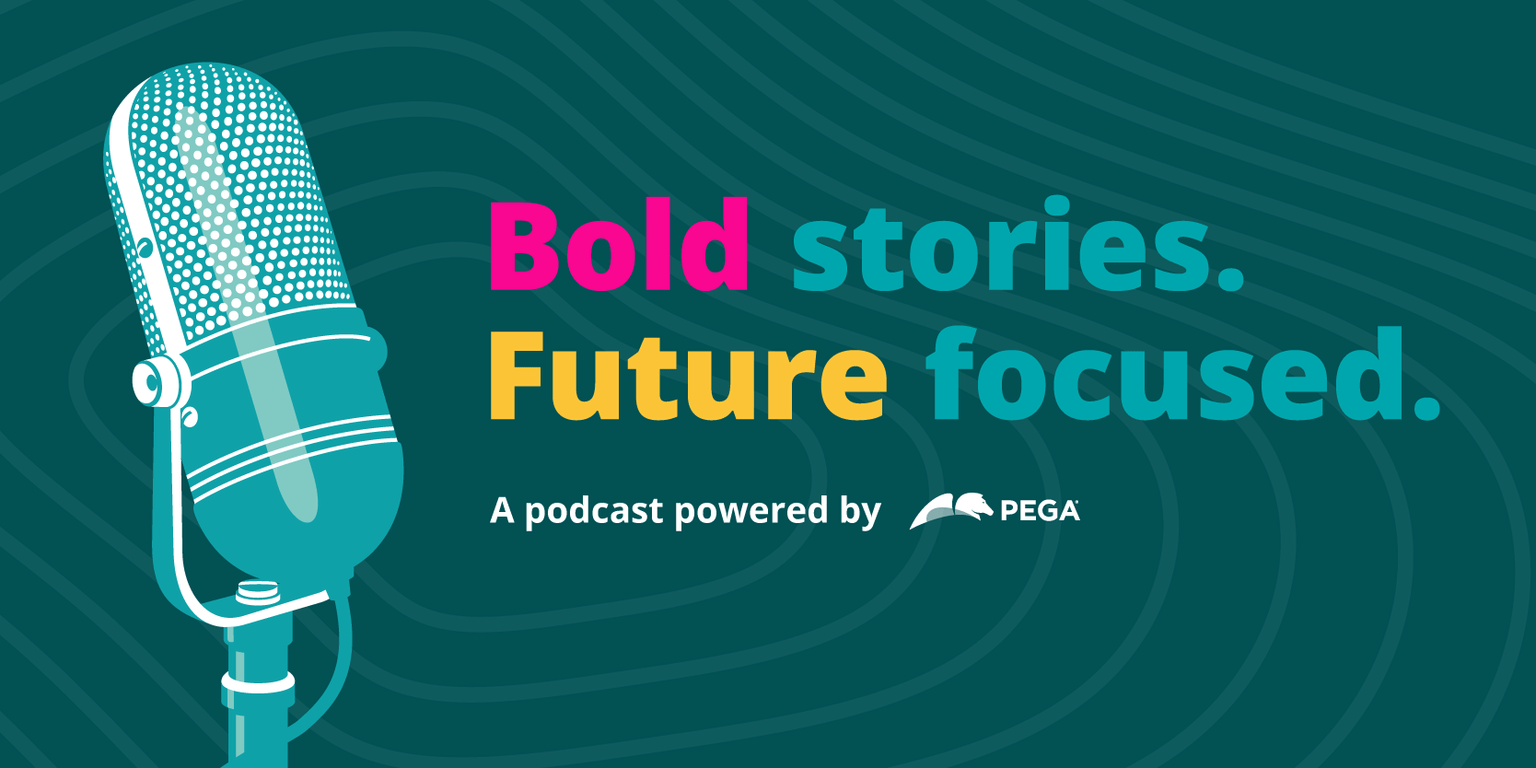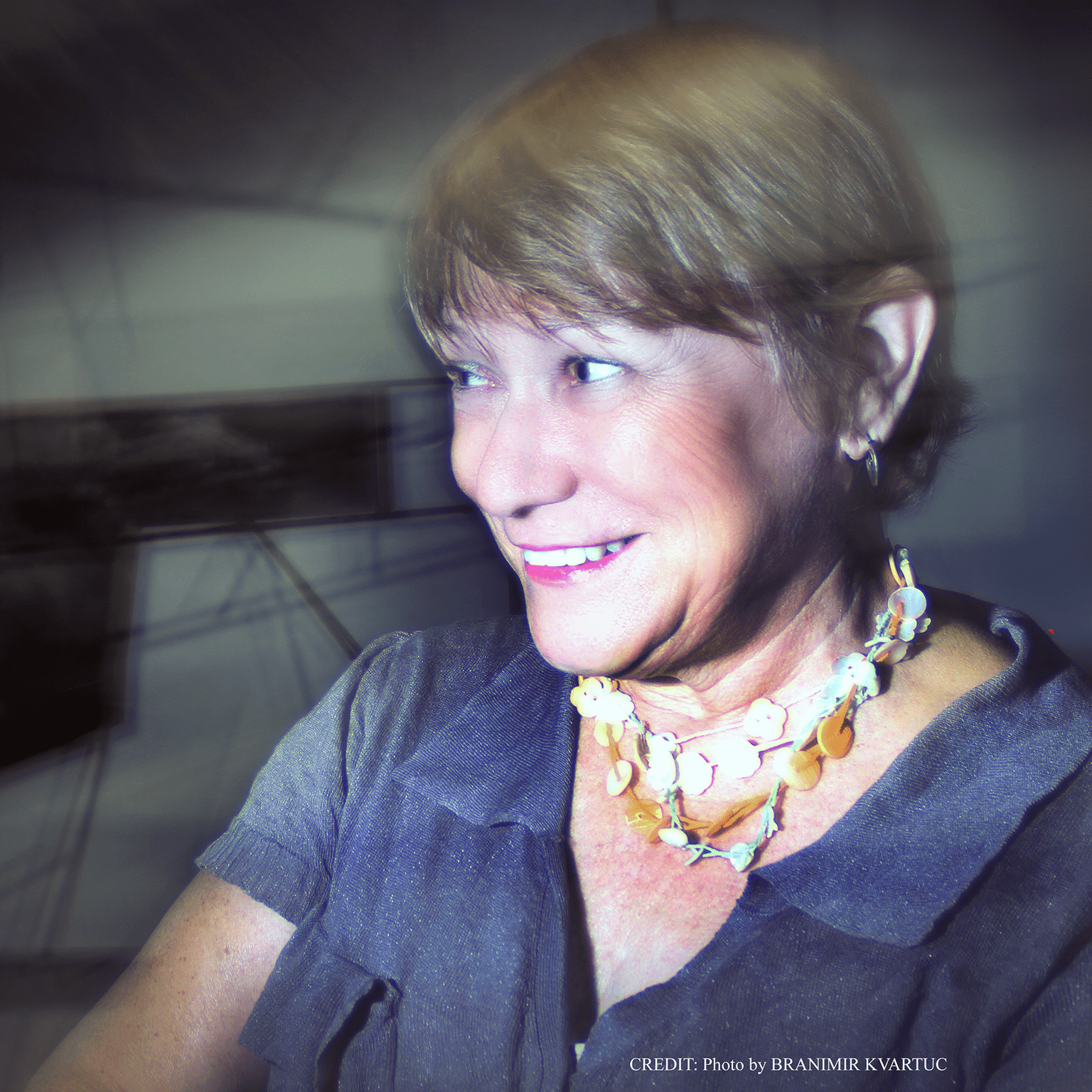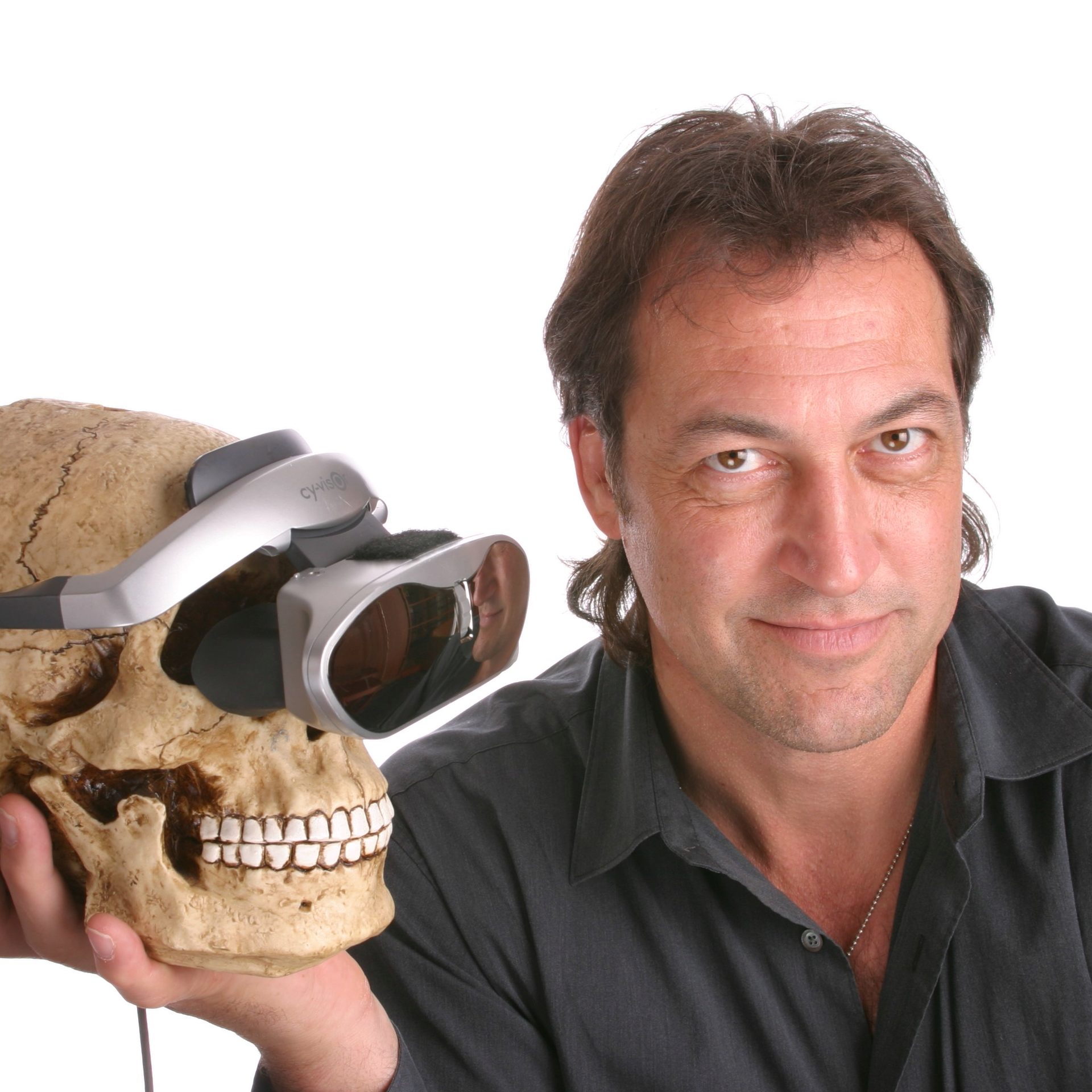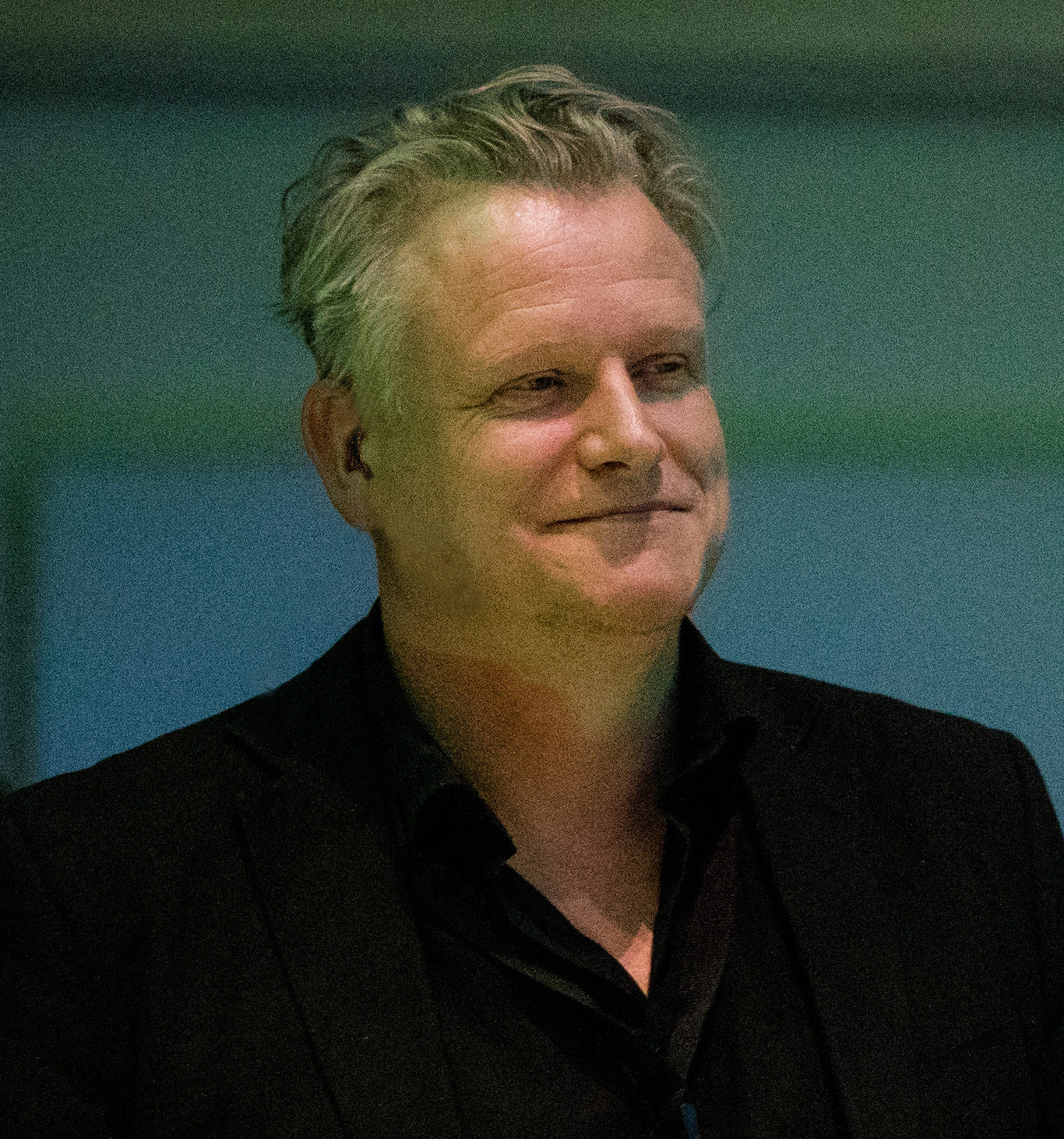Virtual technology is continuously improving, making the futuristic dreams of accessing the metaverse a reality. Virtual spaces are educational learning tools used in classrooms, teleportation machines for international travel, rehabilitation centers for mental recovery, and so much more. Users today can step into virtual spaces for all sorts of experiences, and anyone can design and engage with their dream worlds all in the comfort of their home. Additionally, the advent of synthetic data propels virtual world creation while protecting users’ data and privacy.
Tune in to Season 2 of the Pega podcast, Bold stories. Future focused., for unique insights and stories about how emotion and context impact virtual spaces, how synthetic data is protecting consumer privacy, and more.
Episode 4: The evolving role of virtual reality in our current reality featuring Dr. Jacquelyn Morie
In this podcast episode, James Dodkins (CX Evangelist, Pegasystems) talks with Dr. Jacquelyn Morie, (Senior Technical Advisor to the XPRIZE’s ANA Avatar Prize) about the importance of context when creating virtual reality experiences. Entering a virtual world isn’t only about putting on goggles and using your eyes to see something that’s not really there. These experiences rely on emotion, culture representation, and context to successfully engage users.
For example, Dr. Morie talked about a virtual reality project aimed to support and engage combat veterans dealing with PTSD. The initial design for this space was a peaceful lodge where veterans could gather to talk or play games together. However, the veterans didn’t like the space because it lacked context into their actual wants and needs. They wanted more of a combat experience via virtual reality. So, once their input was utilized, the virtual space was more effective and engaging.
“I saw the potential of not only putting you in a space but putting you in a space that had meaning. And that was what I thought was missing.”
Tune in to hear more about virtual reality use cases with Dr. Jacquelyn Morie

OCTOBER 5, 2021 | 24 MINS
Ep. 4: The evolving role of virtual reality in our current reality ft. Dr. Jacquelyn Morie
The world of virtual reality is leading us toward more meaningful interactions. Virtual reality pioneer and sculptor, Dr. Jacquelyn Morie, shares how these new, immersive environments have the power to help people build emotional connections, heal, and more.
Episode 7: Virtual spaces and how they transform the way we think featuring Kyle Rand and Dr. Skip Rizzo
Kyle Rand (Co-founder and CEO at Rendever) utilizes virtual reality technology to support and engage elderly residents in assisted living homes. The older population suffers from isolation because they aren’t physically able to move around. However, Kyle’s team at Rendever, enables elderly populations to travel around the world, speak with long-distance family members, and revisit childhood homes. As a result of these experiences, many elderly residents have regained memories and felt pure joy without any physical exertion.
“So we looked at this technology as this incredible tool that really allows people to connect with the world outside of the four walls that they’re confined within.”
Dr. Skip Rizzo (Clinical Psychologist and Director of Medical VR at the University of Southern California Institute for Creative Technologies) also shares how he sees virtual reality technology as a solution and support system for psychological recovery use cases. Dr. Rizzo talks about how virtual reality can help veterans with PTSD process their traumatic experiences and how it can be applied to others with traumatic experiences.
“…the idea of once I have PTSD, I’ve got it for life. I don’t agree with that. I think it’s something that can be treated with a number of evidence-based approaches of which I know think VR sits squarely in that mix.”
Listen to the full podcast episode to learn more about how virtual reality can improve cognitive function, aid in trauma recovery, and more:

OCTOBER 26, 2021 | 25 mins
Ep. 7: Virtual spaces and how they transform the way we think ft. Kyle Rand and Dr. Skip Rizzo
Distance, isolation, and trauma are all too real for many, especially over the last year and a half. Kyle Rand, co-founder and CEO at Rendever, and psychologist, Dr. Skip Rizzo, are here to talk about their vision for changing how we can move forward through connections – with the limitless possibilities of VR.
Episode 8: Radical change through virtual spaces featuring Jessica Ochoa Hendrix, Dr. Jacquelyn Morie, and Dr. Skip Rizzo
Jessica Ochoa Hendrix (CEO, Killer Snails) is focused on immersive educational VR in the classroom. Her company, Killer Snails, built a product called BioDive that empowers students to become scientists via hands-on virtual learning. This immersive approach to learning keeps students engaged and ensures that they retain what they’ve learned.
“It’s not just a matter of remembering facts. It’s actually being a scientist. It’s about being curious and asking questions and taking risks on trying to find answers.”
Dr. Jacquelyn Morie (Senior Technical Advisor to the XPRIZE’s ANA Avatar Prize) also talks about how hands-on learning and retention are important benefits provided by VR. There’s a lot of potential in virtual learning and that success also depends on being able to support teachers and schools to provide these resources. Technology is always changing which makes it challenging for schools to keep up with the latest tools and software versions. However, as VR technology grows, so does awareness and support.
“…VR speaks to our embodied self and we learn things through embodying it. We learn things by doing, we learn things by physically going and digging in the sane or building something with blocks.”
Dr. Skip Rizzo (Clinical Psychologist and Director of Medical VR at the University of Southern California Institute for Creative Technologies) brings up another important aspect of VR that’s discussed in this episode --- inclusion and diversity. VR can take the phrase “walking a mile in their shoes” to a completely new level by letting people immerse themselves in other experiences as a way to educate, promote discussion, and increase empathy.
“…I think VR is going to be a powerful force in helping change behavior in a pro-social way in these areas to promote diversity, equity, and inclusion.”
Learn more about virtual reality spaces with these experts:

NOVEMBER 2, 2021 | 27 MINS
Ep. 8: Radical change through virtual spaces ft. Jessica Ochoa Hendrix, Dr. Jacquelyn Morie, and Dr. Skip Rizzo
What if you could test run your dream job? Students are now being given that opportunity with virtual spaces. Listen as Jessica Ochoa Hendrix, co-founder and CEO of Killer Snails, along with Dr. Jacquelyn Morie and Dr. Skip Rizzo chat about how immersive learning is the future of education.
Episode 11: How can synthetic data change the world? featuring Phil Bayer, Beatrice Milik, Emna Amor, and Peter van der Putten
Synthetic data provides a different way to build virtual reality experiences. Synthetic data is artificially created and has the same statistical properties of original data. Why take the time to generate synthetic data? Philip Bayer (User Experience Engineer, Google) talks about how it solves a lot of issues around data privacy and bias because those issues simply don’t exist. As a result, VR projects can be built quicker and with less bias because humans aren’t putting their own biases into their models and this process saves on time and resources.
“You will train your machine learning models to have that same bias. With synthetic data, you can create worlds that you’re hoping for or that you’re envisioning.”
Beatrice Milik (Sales Engineer, Statics) talks about how original data can be traced back to their source even when they claim to be anonymous and secure. This break in trust makes it difficult for people to build and experience VR for its positive benefits. With synthetic data, there is no risk of data leaks because the data doesn’t come from anyone.
“…We basically, as consumers or customers of any type, have no privacy at all. So, of course I wanted to join this mission to build a technology that would eventually give us what is ours back.”
If you want your VR to accurately represent the real world, you need to do a ton of research and collect (then clean) a ton of data. Emna Amor (Sr. Machine Learning Engineer, Statice) talks about how time-consuming this can be and how it takes away from actually testing and launching VR solutions. Synthetic data enables people to use valuable time in testing and deployment.
“Imagine you want to build autonomous cars and you need to ride in every corner of the world, try to find every combination of possible scenarios in the real world. […] It would take maybe ages, too much time to collect this data…”
And, whether VR is built with real data or synthetic data, the goal is to recreate our real world in a digital format. However, Peter van der Putten (Director for AI Solutions, Pegasystems) shares that there is such a thing as creating a virtual world that’s too perfect. There’s a graininess to the real world that VR doesn’t always capture. The real world has unpredictable weather conditions that impact visibility and that’s an imperfection that VR has yet to perfect.
“There’s more and more research going into how we can make VR more like the real world […] the issue is that a lot of VR is hyper-realistic.”
Check out the full episode to learn more about synthetic data in VR:

NOVEMBER 30, 2021 | 22 MINS
Ep. 11: How can synthetic data change the world? ft. Phil Bayer, Beatrice Milik, Emna Amor, and Peter van der Putten
As AI becomes more capable, it must collect more data to adapt better to our world. By creating it artificially (and not at the expense of our privacy), our future becomes smarter that much faster. Listen to see how our guests have seen big results with synthetic data.
Check out the entire podcast series to hear more stories from industry experts and Pega team members!













